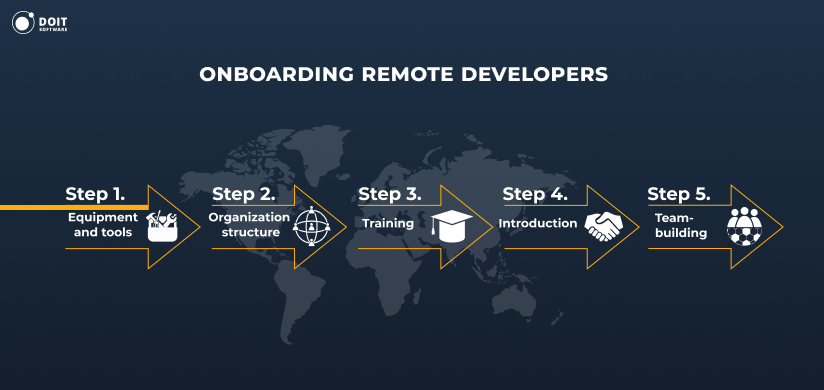In today’s fast-paced digital landscape, the demand for mobile applications has surged, making it essential to hire React Native app developers who can deliver top-notch solutions. React Native, a popular framework, allows developers to create cross-platform applications efficiently, combining the best of both iOS and Android worlds. By tapping into this powerful technology, businesses can enhance user experiences and streamline their development processes.
As you explore the benefits of hiring React Native app developers, you’ll find that their expertise not only accelerates time-to-market but also ensures that your app remains competitive in an increasingly crowded marketplace. With the right team, you can transform your ideas into reality and engage users in meaningful ways.
As we journey deeper into the 21st century, the conversation around sustainability has noticeably intensified. Businesses, regardless of their size or sector, are increasingly recognizing the necessity to adopt sustainable practices. This shift is not merely a trend; it fundamentally reflects changing consumer expectations, regulatory pressures, and a growing acknowledgment of corporate responsibility. This article explores the significance of sustainable practices in modern business and how they can be effectively integrated into various operational strategies.
Understanding Sustainability in Business
Sustainability in business refers to the ability to operate in a manner that meets today’s needs without compromising the ability of future generations to meet their own needs. It encompasses a range of practices that aim to minimize environmental impact, promote social responsibility, and enhance economic viability. The three pillars of sustainability—environmental, social, and economic—collectively form the foundation upon which businesses can build resilient and future-ready strategies.
Why Businesses Should Embrace Sustainability
There are several compelling reasons why businesses should prioritize sustainable practices:
- Consumer Demand: Today’s consumers are more informed and concerned about the impact of their choices on the environment. They prefer to support brands that demonstrate a commitment to sustainability. According to recent studies, a significant percentage of customers are willing to pay a premium for products and services that are environmentally friendly.
- Regulatory Compliance: Governments worldwide are implementing stricter regulations to combat climate change and promote environmental protection. By adopting sustainable practices, businesses can ensure compliance with current and future regulations, avoiding potential fines and sanctions.
- Cost Savings: Implementing sustainability initiatives can lead to significant cost savings. Energy-efficient practices, waste reduction, and resource optimization can lower operational costs, positively impacting the bottom line.
- Brand Reputation: A commitment to sustainability can enhance a company’s reputation. Businesses that are seen as responsible and eco-conscious tend to attract positive media attention, fostering customer loyalty and trust.
- Competitive Advantage: Companies that integrate sustainability into their core strategy can differentiate themselves from competitors. This not only helps in attracting customers but can also appeal to talented employees who prefer to work for socially responsible organizations.
Integrating Sustainable Practices into Business Operations
To truly embrace sustainability, businesses must integrate these practices into their operations rather than treat them as an add-on. Here are some strategies to consider:
1. Sustainable Supply Chain Management
Businesses should evaluate their supply chains thoroughly. This includes selecting suppliers that share a commitment to sustainability, ensuring ethical labor practices, and choosing materials that are sustainable and responsibly sourced. By promoting transparency in the supply chain, companies can minimize their environmental impact and build a strong brand reputation.
2. Energy Efficiency Initiatives
Energy consumption is a major contributor to greenhouse gas emissions. Companies can implement energy-efficient technologies and practices, such as upgrading to LED lighting, utilizing energy-efficient appliances, and adopting renewable energy sources like solar or wind. These changes not only reduce carbon footprints but also cut costs in the long run.
3. Waste Reduction Strategies
Implementing waste reduction strategies is crucial in minimizing environmental impact. Businesses can adopt practices such as recycling, composting, and reducing single-use plastics. Additionally, considering circular economy principles can help companies find innovative ways to reuse materials and minimize waste.
4. Employee Engagement and Training
For sustainable practices to be effective, employee engagement is vital. Companies should educate their employees about sustainability initiatives and involve them in the process. Training programs can be developed to foster a culture of sustainability within the organization, encouraging employees to contribute ideas and actively participate in eco-friendly practices.
5. Measuring and Reporting Sustainability Efforts
To gauge the effectiveness of sustainability initiatives, businesses should establish metrics and regularly report on their progress. This transparency not only holds companies accountable but also helps build trust with consumers and stakeholders. Various frameworks and standards, such as the Global Reporting Initiative (GRI), can guide businesses in effectively reporting their sustainability efforts.
Challenges in Implementing Sustainable Practices
While the benefits of adopting sustainable practices are substantial, businesses may encounter several challenges during implementation:
- Cost Implications: The initial investment in sustainable technologies or practices may be perceived as high. However, it is essential to recognize the long-term savings and benefits these investments can yield.
- Resistance to Change: Change can be difficult. Employees and stakeholders may resist new practices, making it crucial for leadership to communicate the importance and benefits of sustainability effectively.
- Complexity of Supply Chains: Managing a sustainable supply chain can be complex, particularly for businesses with multiple suppliers across various regions. Ensuring compliance and sustainability at every level requires diligent effort and resources.
Conclusion
Embracing sustainable practices is no longer optional for businesses; it is a necessity in today’s world. Beyond the environmental benefits, sustainability fosters innovation, enhances brand reputation, and ultimately drives profitability. By integrating sustainability into their core operations, companies not only contribute to a healthier planet but also secure their own future in an increasingly eco-conscious marketplace. As consumers continue to demand accountability and responsibility, those businesses that lead the charge towards sustainability will undoubtedly reap the rewards.
Common Queries
What are the benefits of hiring React Native app developers?
Hiring React Native app developers offers faster development times, reduced costs, and the ability to create apps for both iOS and Android from a single codebase.
How do I find qualified React Native app developers?
You can find qualified developers through online job boards, freelance marketplaces, and tech recruitment agencies that specialize in mobile app development.
What skills should I look for in a React Native developer?
Look for developers with strong JavaScript skills, familiarity with mobile app development best practices, and experience with third-party libraries and APIs.
How long does it typically take to develop a React Native app?
The timeline for developing a React Native app can vary greatly depending on the app’s complexity, but generally, a simple app can take 2-3 months while more complex applications may take 6 months or longer.
Can React Native be used for enterprise-level applications?
Yes, React Native is suitable for enterprise-level applications due to its scalability, performance, and ability to integrate with existing systems.












